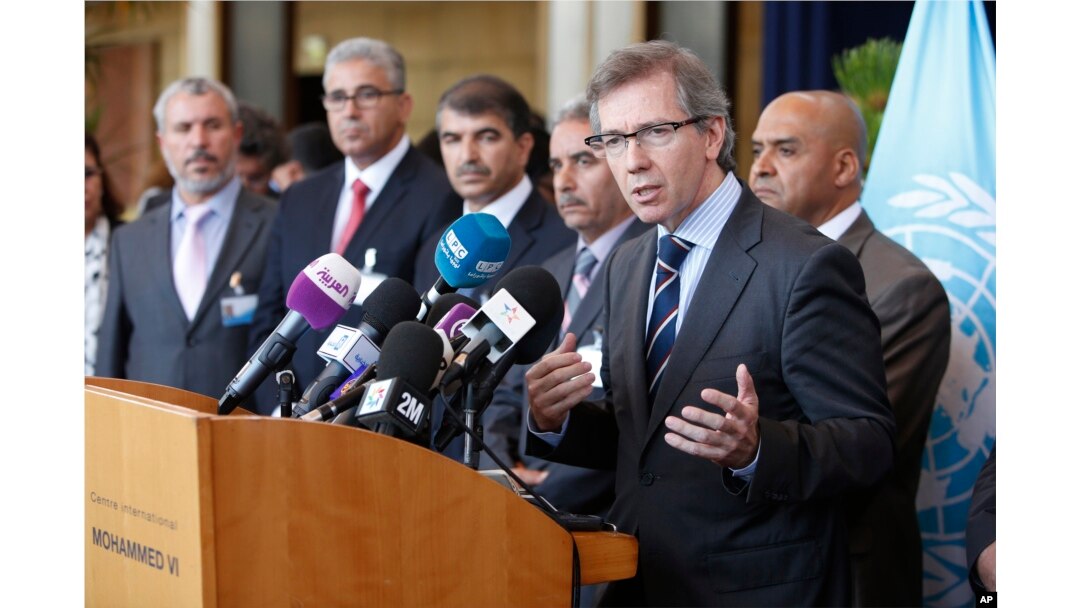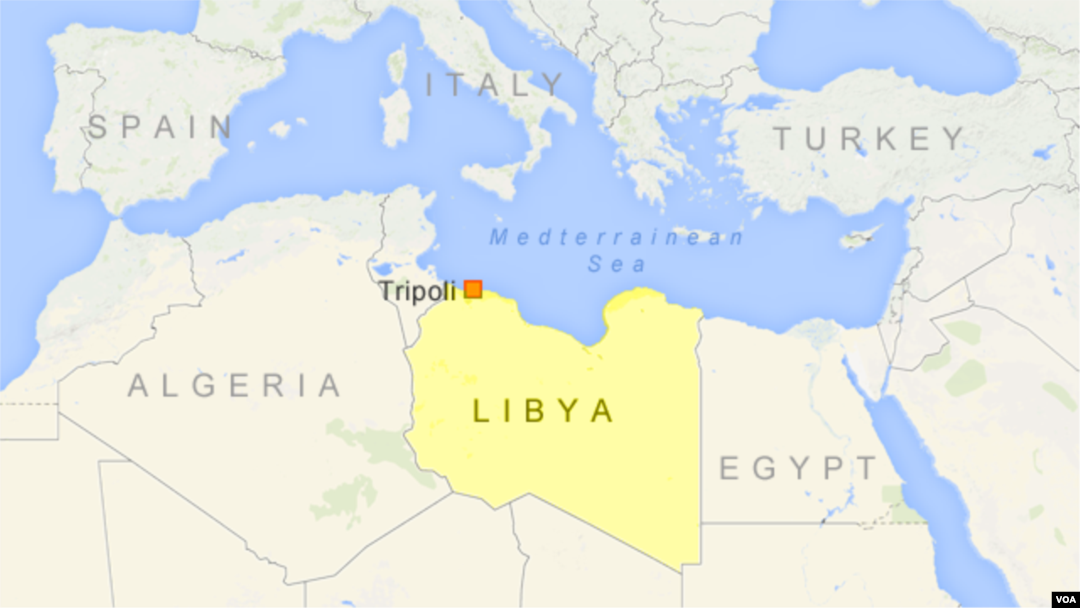Militants loyal to the extremist Islamic State group managed to penetrate an air base Friday on the outskirts of Tripoli that serves as the Libyan capital’s only working airport and launch an attack on the headquarters of an Islamist militia that is opposed to them.
The attack by a suicide squad composed of at least four militants is one of the most aggressive forays the Islamic State has made on the Libyan capital. Four assailants were killed, according to a spokesman for the mainly Islamist upstart Tripoli-run government — the rival to the internationally recognized administration now in exile in the eastern Libyan towns of Tobruk and Beida.
At least three members of the Special Deterrence Force, a 700-member militia loyal to the Tripoli government, were killed, rebuffing the assault. The Tripoli government issued a statement expressing condolences to the families of the SDF fighters killed and emphasized its determination “to fight and eliminate terrorism.”
Diplomacy
The attack comes as the U.N.’s special envoy to Libya, the Spanish diplomat Bernardino Leon, is seeking to hammer out a complicated power-sharing deal to rid fractious Libya of its parallel rival governments. Under the Leon deal the factions would form a government of national accord, but talks are faltering ahead of a September 20 deadline.

U.N. representative for Libya, Bernardino Leon, right, addresses reporters while Libyan parliaments members listen in Rabat, Morocco, Sept. 18, 2015.
Leon has said his announced deadline is the “very last moment” for Libyans to come together.
The Islamic State has exploited the turmoil in Libya and has been striking in territory controlled by both the upstart government in Tripoli and the internationally recognized one in the east of the North African country. In June the IS affiliate seized the coastal city of Sirte, 450 kilometers east of Tripoli, vanquishing in the process one of strongest battalions, the 166th, from the militia-rich town of Misrata, a key backer of the Tripoli government.
Eastern forces commanded by General Khalifa Haftar, who is also fighting Libya Dawn forces loyal to Tripoli, have found it tough going combating IS as well and have been unable to clear the eastern city of Benghazi of jihadists.
Long-running duel
The attack Friday on the Mitiga airbase, once used by the U.S. air force, marks another episode in a long-running duel between the Islamic State’s affiliate in Libya and the Special Deterrence Force commanded by a hardline Islamist, Abd al-Rauf Kara, a Tripoli-born 35-year-old who sports a luxuriant dark beard streaked with gray.
IS later claimed responsibility on Twitter for Friday’s attack, saying the operation was aimed at releasing “detained Muslims who are undergoing torture” at the facility run by the SDF, a two-minute drive from a ramshackle terminal used by passengers to fly the few domestic flights and a daily flight to Malta now available.
Four militants — a Moroccan, a Tunisian and two Sudanese — died in the attack after they “clashed with the guards and killed and wounded many of them,” the group claimed. Some reports from the Libyan capital suggest that in all, eight IS militants may have been involved in the assault, with some of them wearing belts packed with explosives.
“First there was an explosion... and then a clash with automatic weapons," a security official at the airport told the AFP news agency.
Kara’s force has clashed several times with IS, most notably last January when his men were the first on the scene to battle jihadists who had stormed the landmark Corinthia Hotel and killed 10 people as they went looking for Westerners to slaughter. A U.S. security contractor staying at the hotel was killed.
In an exclusive interview with this correspondent this summer — Kara rarely speaks with Western journalists — the SDF leader warned that IS in Libya is likely to grow exponentially unless order is restored to Libya quickly. He estimated that IS had about 2,000 fighters in Libya — although some of his lieutenants put the number closer to 3,000. IS can also call upon other jihadist militias such an Ansar al-Sharia, which U.S. officials say was behind the 2012 assault on the U.S. diplomatic compound in Benghazi and the death of Ambassador Christopher Stevens.
Using the Arab acronym for IS, he said: “Daesh is focusing on Libyan youth and they are doing a great deal of recruiting online. Tunisians dominate Daesh here now — and they are three or four times the number of Libyans in the group, but that could change.” IS fighters in Libya are also drawn from across north and sub-Sahara Africa — from Mali, Mauritania, Algeria, and Ethiopia.
He explained the IS field commanders in Libya are mostly Libyan. But he said he believed the group’s jurists and strategists, mainly from Gulf countries, reported back to IS leaders in Syria and Iraq for general orders.
In May, IS sent a small team to car-bomb the SDF’s headquarters at Tripoli’s Mitiga air base, where VOA interviewed Kara. The SDF learned of the plan and ambushed the attackers on the highway 13 kilometers from Tripoli in the seaside town of Tajoura, which was once famous for its fish restaurants. Two bombers were killed in the shootout and Kara and his aides showed this reporter cell phone photographs of the ambush and of the dead IS fighters.


